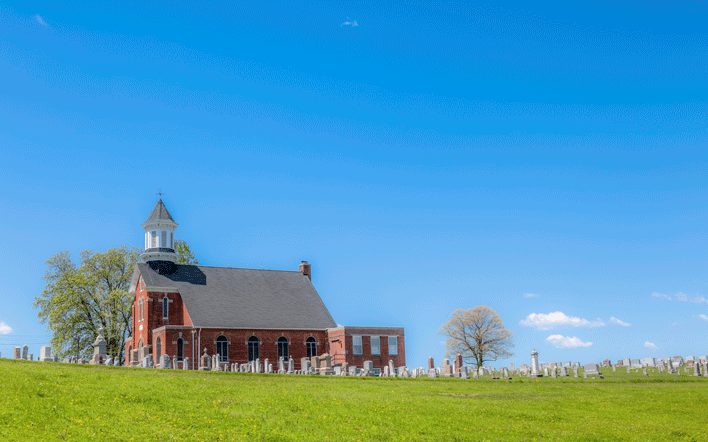A wealthy industrialist who was a pioneer in the American tobacco industry, James Buchanan Duke had a vision for a healthy Carolinas that is still honored by the endowment he created in 1924. Today the $3.7 billion Duke Endowment focuses on child care, higher education, health care, and, more uniquely, rural churches. These churches are often the cornerstones of their communities. Philanthropy contributor Allison Futterman discusses the foundation’s rural-church program with its director, Robb Webb.
Q: Why are churches important in rural communities?
A: Churches are anchor institutions for people who’ve lived in a place for a long time. There was a time when rural communities were agrarian. Then there were mills, and then the mills closed. Children moved away. But the one thing that remained was the church. That longtime staying power gives them an important role in these communities.
They also play an important formation role in the lives of the congregants. The gift of a small church is that everyone knows who you are, and they expect you to be there and to use the talents you have to help others. There’s a sense of reliance on one another and accountability. This helps address isolation.
Q: What are some unique needs in rural areas that churches address?
A: Churches provide social safety nets like temporary food assistance, with the church becoming a distribution point for supplies from larger city food banks. We work hard to make the food as nutritious as possible. Rural churches also help with affordable housing, and marshal large amounts of volunteers to fill in gaps.
For example, some churches host a summer-literacy program for young students to help them retain what they’ve learned during the school year. And literacy is just one part of the enrichment program. Volunteers take the kids to museums and attractions in the area. They take them to the movies. For some kids, they’ve never been to a movie before—it’s a big deal. They benefit from cultural outreach that they wouldn’t ordinarily get.
Q: How does the Duke Endowment recruit church leadership?
A: We have a longstanding fellowship—we pay for seven students a year to go to Duke Divinity School, and they commit to five years at a rural North Carolina church. One of the hurdles that keeps people from serving rural areas is that the pay may be lower, so they can’t pay back student loans. We’ve reduced that burden, and now we have almost 60 fellows serving at churches and another 20 at the divinity school. Many of these new leaders are some of the best and brightest in their class. They think creatively about real issues happening in rural places. Our hope is that when you unleash a fresh set of leaders into rural places, they can make church more interesting and craft new solutions to entrenched problems.
Q: How do you promote community engagement?
A: We built a technical-assistance network to help churches bring new people in. These folks look at the data related to the church and community and analyze it, in order to help the church be better engaged. The network will look at assets the church has, look at community needs, and make connections.
For instance, could a church fellowship hall that’s not getting much use during the week be used as a commercial kitchen, or another business incubator? We need to be imaginative about churches using their assets for entrepreneurialism, to create something just and good. Churches have traditionally been home to 12-Step programs, and there’s a long history of groups that have spun off from those programs, such as Celebrate Recovery and Bridge to Recovery, which provides temporary housing for people who are out of detox. Churches understand what their community needs.
Q: Churches are often involved in some of the other program areas the Duke Endowment funds, such as child care and various social services. Do you do any cross-disciplinary programming?
A: We look for those opportunities with every grant cycle, and we have a few child-care programs. We’ve also looked at the dearth of foster parents and worked on recruiting and training church members to become foster families. We want to create more foster families for kids in North Carolina who need them. With health care, we have a deep interest in food and nutrition and the social determinants of health.

